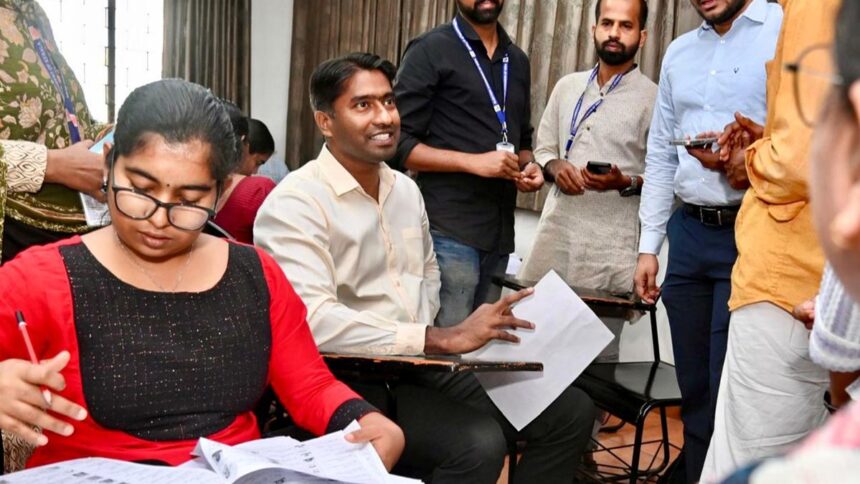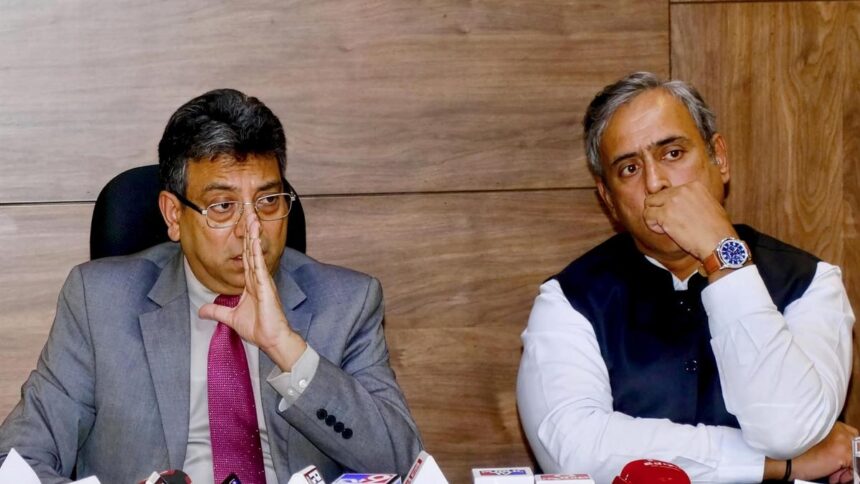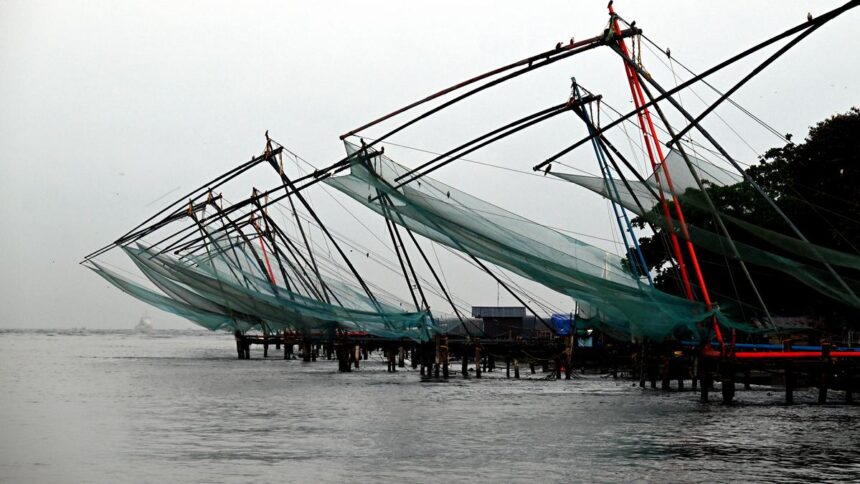Observing that the Centre and the States had displayed a “grossly apathetic attitude” towards integrating transgender persons into the mainstream, the Supreme Court on Friday (October 17, 2025) constituted a committee headed by former Delhi High Court judge Justice Asha Menon to formulate a national equal opportunity policy for transgender individuals.
A Bench of Justices J.B. Pardiwala and R. Mahadevan issued the directions while hearing a petition filed by Jane Kaushik, a transwoman teacher who alleged that she was forced to resign from a school in Lakhimpur Kheri, Uttar Pradesh, in December 2022, and subsequently denied employment by another school in Gujarat in July 2023, both owing to her gender identity.
‘Lack of implementation’
While granting her compensation, the Bench noted that despite the court’s landmark NALSA judgment in 2014, which recognised transgender persons as a “socially and educationally backward class” entitled to reservations in education and public employment, and the enactment of the Transgender Persons (Protection of Rights) Act, 2019, there had been a “complete lack of implementation of measures” to prevent discrimination in both public and private sectors.
“The Union of India and the States have exhibited a grossly apathetic attitude towards the transgender community, by defacing the lived realities of this community with their inaction. Considering the protraction of this inaction, such an attitude cannot be reasonably considered to be inadvertent or accidental; it appears intentional and seems to stem from deep-rooted societal stigma and the lack of bureaucratic will to effectuate the provisions of the 2019 Act,” the Bench observed.

The court underscored that the right to equality under Article 14 of the Constitution embodies the principle of reasonable accommodation, which places a positive obligation on the State to ensure that “those who are placed unequally” achieve “equal protection of laws”. It further remarked that discrimination “also operates through omission through the silences, exclusions, and failures of the law to protect certain groups or to recognise particular forms of disadvantage.”
During her tenure at the Uttar Pradesh school, Kaushik said she was repeatedly subjected to body shaming, harassment, and derogatory name-calling. She alleged that she was later “forced” to resign after being threatened that her dues would be withheld. In July 2023, she was offered a teaching position in a Gujarat school, but after her gender identity was disclosed, the offer was rescinded and she was allegedly denied entry to the premises.
The court found no deliberate discrimination on the part of the U.P. school, though it said the institution’s conduct “cannot be said to be unimpeachable”. However, it held the Gujarat school guilty of violating the 2019 Act and directed it to pay Kaushik ₹50,000 in compensation within a month.
Referring to its 2022 judgment in Shavani Ponnusamy v. Ministry of Civil Aviation, the Bench noted that despite prior directions to the Centre to devise a policy framework for ensuring reasonable accommodation of transgender persons in employment, little progress had been made. It expressed concern over “serious inertia” among the States, observing that apart from Odisha and Kerala, none had implemented comprehensive policy measures as mandated under the 2019 law.
“In the present case, the State of Uttar Pradesh, the Union and State Ministries of Education and Social Justice, as well as the Central Board of Secondary Education, ought to have ensured compliance with the 2019 Act and the Rules framed thereunder. By failing to do so, the State has committed omissive discrimination against members of the transgender community,” the court said.
Accordingly, it directed the Union government to pay ₹50,000 to Kaushik as compensation and the States of U.P. and Gujarat to pay ₹50,000 each within four weeks, holding them accountable for their “inaction and lethargy” that led to the absence of effective redressal mechanisms.
Directions to Union and States
Invoking its plenary powers under Article 142 of the Constitution, the court issued a series of directions to strengthen enforcement of the 2019 Act and its rules. Every State and Union Territory must designate an appellate authority to hear appeals against orders of District Magistrates, create welfare boards for transgender persons, and establish transgender protection cells in each district under the supervision of the District Magistrate and the Director General of Police. These cells will monitor offences against transgender persons and ensure prompt registration, investigation, and prosecution.

The court further directed that all establishments appoint complaint officers as mandated under Section 11 of the 2019 Act and Rule 13(1) of the 2020 Rules. In the absence of a forum to address grievances against such officers’ decisions, the State Human Rights Commission will act as the competent authority.
The Bench also ordered the creation of a nationwide toll-free helpline to report violations of the 2019 law, with information to be immediately relayed to the transgender protection cells for action.
The Centre along with all the States and Union territories have been directed to ensure strict compliance within three months of the judgment.
Advisory committee
The Justice Menon-headed committee will include transgender rights activists Akkai Padmashali, Grace Banu, and Vyjayanti Vasanta Mogli; Sourav Mandal, Associate Professor at Jindal Global Law School; Nithya Rajshekhar, Senior Research Associate at the Centre for Law and Policy Research, Air Commodore (Retd.) Dr. Sanjay Sharma, CEO of the Association for Transgender Health in India; and senior advocate Jayna Kothari, who will serve as amicus curiae.
The ex-officio members will comprise the Secretaries of the Ministries of Social Justice and Empowerment, Women and Child Development, Health and Family Welfare, Education, Labour and Employment, Personnel and Training, and Legal Affairs.

The court has asked the committee to frame a model equal opportunity policy within six months, identify gaps in the 2019 Act and Rules, and propose corrective measures. It has also been tasked with suggesting ways to increase transgender participation in workplaces and public spaces, streamline procedures for gender and name changes while protecting privacy, and create an effective grievance redressal mechanism.
The panel will further recommend steps to make healthcare more inclusive and assess how the State can protect the rights of gender-nonconforming and non-binary persons without imposing bureaucratic barriers.
In her petition, Kaushik had alleged that the Union and State governments had failed to implement the 2019 law in both letter and spirit, and sought enforcement of equal rights and employment protections for transgender persons.
The Supreme Court had, in 2024, sought responses from the Centre and the governments of U.P. and Gujarat on her plea. A Bench led by Chief Justice of India D.Y. Chandrachud had noted: “The petitioner’s grievance is that her services were terminated by schools in Uttar Pradesh and Gujarat after her gender identity was revealed. The petitioner submits that she cannot pursue remedies in two different High Courts. Issue notice to the Union and the States, returnable in four weeks.”
Following her termination from the Uttar Pradesh school, a district-level inquiry committee was constituted by the National Commission for Women (NCW) to determine whether her dismissal was linked to her gender identity. In its report issued in January 2023, the panel exonerated the school, terming Kaushik’s allegations “baseless”. Kaushik subsequently challenged the NCW’s findings before the Supreme Court.























